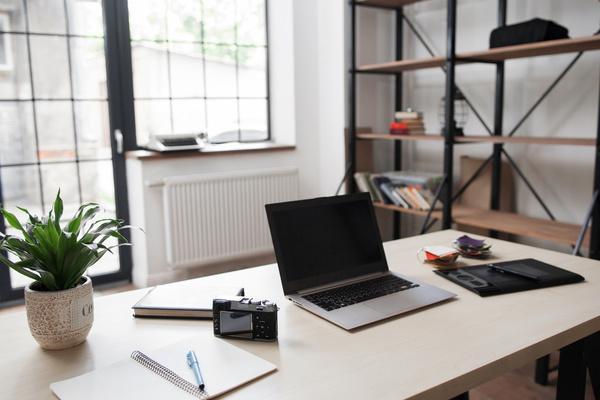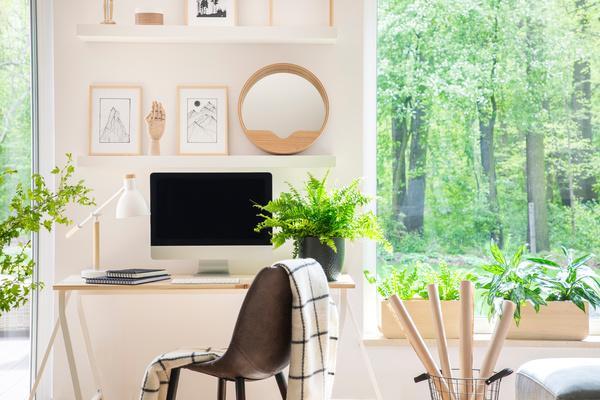7 Tips for Creating a Functional Home Office
While the COVID-19 pandemic has largely ended, one thing that has stuck around is the increased ability to engage in virtual work. If you have an office job, you’re likely working from home at least part of the time. If you are between jobs or seeking a new job, this post can give you valuable home office tips for use during and after the search process.
A functional home office has several benefits:
1) It helps you be more productive and focused.
2) It gives you a central location to store office supplies and paperwork.
3) It is a place you can go to for privacy if you need to be on the phone, conduct interviews, or attend Zoom meetings.
Here are some top tips for creating a functional home office.
1. Start from Scratch, if Possible.
Lots of people take a spare room or area that was used for another purpose. They throw some office furniture in there and call it an office. A better plan is to take time to clear out a room and redecorate it. When you start from scratch, you choose a color scheme you will enjoy and create a space you want to spend working hours inhabiting.
There’s nothing worse than a home office that gets on your last nerve because it isn’t aesthetically pleasing, except one that feels like it belongs to someone else, so make sure your choices reflect your style and feel comfortable. If you are sharing a home office with someone, make sure you each have your own area within it that reflects each of you.
2. Consider How Things Will Be Used.
It may be difficult to envision how you will use the office if you don’t have a job yet, but you should have some idea based on the jobs you’re considering. Will you be sitting at a desk most of the time? Will you take breaks? Will you need a television for work purposes? How many monitors will you use?
Once you have an idea of how you will use the office, you can make better choices about what to buy and what to avoid. Less is more in a home office setting, so start at the bottom and see what you need. It’s not difficult to get things from Amazon quickly and waiting to see if you have a need for a third monitor or couch for breaks could save you money.
3. Work with the Light.
Expert advice suggests putting a desk perpendicular (at a 90-degree angle) to a window to make the best use of natural light. However, putting your desk right in front of a window can also work. You can also add your own lighting if you don’t have natural light, which should be soft and offer a nice glow. Adding small lamps with warm light can give your space ambience but are not necessary in many cases.
4. Control Papers with Storage.
You will need storage to hold paperwork and supplies. When you think about how you store papers and materials, they should be hidden behind drawers or in containers, so your mental energy isn’t spent looking at clutter. It’s important you nail down your paper storage and use a system that keeps everything organized so you don’t have to waste time looking for things.
5. Do You Need a Couch?
Consider putting leisure-time items like a couch or viewing screen in the office unless you need them for work. Not only can leisure equipment in the office blur the lines between work and play; they can also keep you hidden from loved ones or family members if need be.
It’s better to leave the home office to eat, watch screens, or lounge than it is to do these things inside the office, isolated from everyone else in the home. Offices tend to be among the smaller rooms of houses, so they may become crowded if you put too much in there.

6. Stock Up on Supplies.
While you don’t want your office to be packed, you should keep extra supplies on hand for things you may suddenly run out of, like paper or envelopes. Stocking up when items are on sale will save you money and having items on hand when you run out will save you from very unproductive trips to office supply stores during work hours.
7. Refresh with New Items.
You will probably spend many hours in your office, so you may get bored seeing the same items, containers, and artwork all the time. It’s possible you’ll spend more waking hours in your office than anywhere else if you work from home full time. Bringing in some small, inexpensive items or changing artwork periodically will help you from feeling like you want to be anywhere but the same place for one more day.
GDH helps job seekers match their skills and qualifications to companies that need their talent. Join our talent network to see what employers in your area are looking for.








